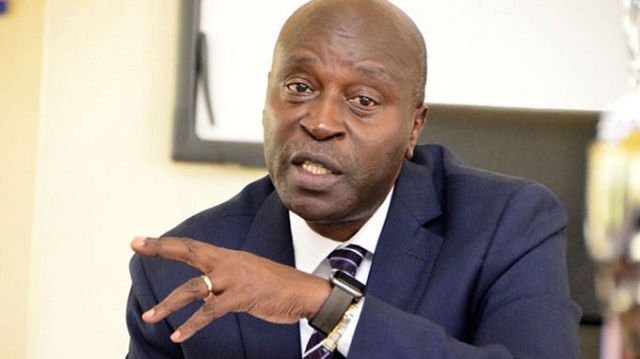
Kampala, Uganda | THE INDEPENDENT | Kyambogo University students remain absent from lectures despite the start of the new semester. This has prompted concerns among administrators about the loss of valuable time and the disruption of teaching.
Even though the semester has started, the campus, typically bustling with activity, is quiet.
Once filled with movements of students between lecture halls and stationery cafes, their absence now creates a deserted atmosphere on campus.
Eli Katunguka, the Vice Chancellor of Kyambogo University, expressed his surprise at the absence of students on the campus, pondering the reasons behind the situation.
As per the university circular issued to students before the holiday break in December, it was anticipated that students would return to the university on January 20, with lectures scheduled to commence on January 22. However, this timeline has not been realized.
At Kyambogo University, a semester is typically structured into three segments of weeks, with 13 weeks dedicated to lectures, 2 weeks allocated for personal reading and revision, and an additional 2 weeks for examinations.
Katunguka has expressed concern about the delays, emphasizing that they are consuming valuable teaching and learning time. He adds, that the delay might impact the coverage of the syllabus and the transfer of skills, as the lecturers were originally set to begin their duties according to the timetable.
The Vice-Chancellor emphasized that the university would not be extending the semester.
This decision was based on significant financial implications, and any time lost during the semester would be the responsibility of the students to make up for.
When URN reporter visited the university, a small number of students were found in the playground. In the course of the discussion, one student, Asia Nalubega, said that she had been consistently attending lectures since Monday. However, she mentioned that during each lecture, only four or five students turn up.
“When a lecturer arrives and discovers only one or two students present, what do you expect? They often turn back, and only a handful proceed with the lecture.” the student noted.
The delayed commencement of the academic term is becoming a prevalent trend among Ugandan students, starting from primary levels. Many parents and guardians often defer sending their children back to school for the first one or two weeks, citing financial constraints.
This issue becomes particularly common during January terms and semesters.
However, the root cause is often attributed to poor planning, as students who join later not only lose valuable time but also face challenges catching up with what has already been covered.
Meanwhile, Katunguka announced that the university will revert to running two semesters annually, addressing previous challenges in planning and execution.
The introduction of a third semester was a response to the government’s proposal to admit an additional cohort of students in 2021, compensating for the absence of learners who sat for A-level exams due to the impact of COVID-19 on the education sector.
The Vice-Chancellor mentioned that in the current reprogramming, the first semester is set from January to May, followed by the second commencing in August. This adjustment is aimed at normalizing semesters and intakes at the university.
The three-semester model led to challenges in managing academic programs and planning, reducing contact hours for some programs due to shorter semester lengths.
Moreover, student complaints arose concerning delayed results, as they would start the next semester without knowledge of the previous one’s outcomes.
*******
URN
 The Independent Uganda: You get the Truth we Pay the Price
The Independent Uganda: You get the Truth we Pay the Price





